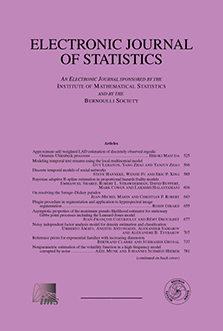Abstract
Recent exploration of the optimal individual treatment rule (ITR) for patients has attracted a lot of attentions due to the potential heterogeneous response of patients to different treatments. An optimal ITR is a decision function based on patients’ characteristics for the treatment that maximizes the expected clinical outcome. Current literature mainly focuses on two types of methods, model-based and classification-based methods. Model-based methods rely on the estimation of conditional mean of outcome instead of directly targeting decision boundaries for the optimal ITR. As a result, they may yield suboptimal decisions. In contrast, although classification based methods directly target the optimal ITR by converting the problem into weighted classification, these methods rely on using correct weights for all subjects, which may cause model misspecification. To overcome the potential drawbacks of these methods, we propose a simple and flexible one-step method to directly learn (D-learning) the optimal ITR without model and weight specifications. Multi-category D-learning is also proposed for the case with multiple treatments. A new effect measure is proposed to quantify the relative strength of an treatment for a patient. We show estimation consistency and establish tight finite sample error bounds for the proposed D-learning. Numerical studies including simulated and real data examples are used to demonstrate the competitive performance of D-learning.
Citation
Zhengling Qi. Yufeng Liu. "D-learning to estimate optimal individual treatment rules." Electron. J. Statist. 12 (2) 3601 - 3638, 2018. https://doi.org/10.1214/18-EJS1480





